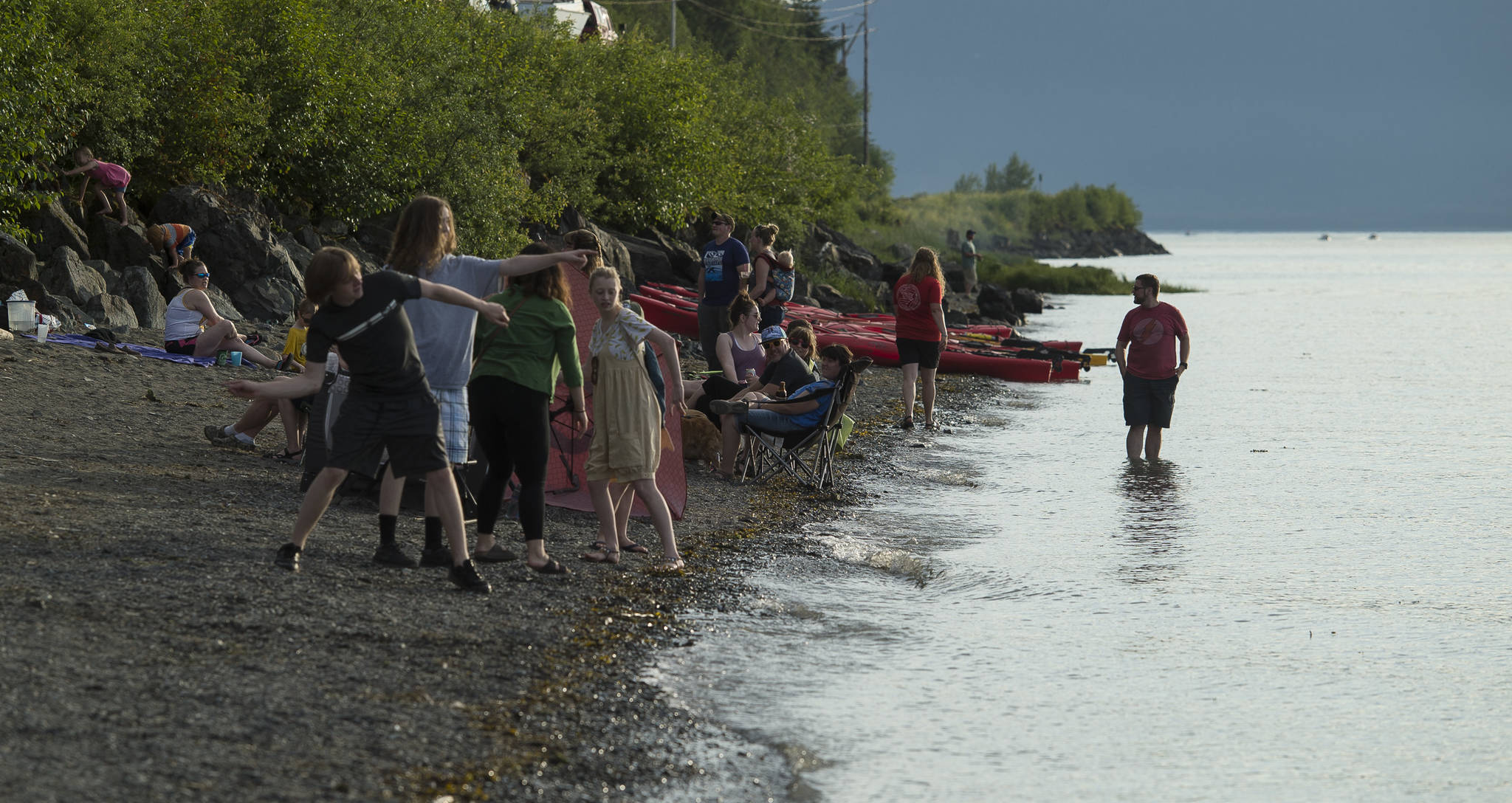Wednesday’s sunny weather resulted in the third-highest temperature ever recorded in the capital city and the warmest day in five years.
According to the National Weather Service measuring station at Juneau International Airport, the afternoon temperature briefly reached 85 degrees. That ties the second-highest temperature recorded in June and ties the mark for the third-highest temperature recorded at any time.
Records have been kept at the airport since 1936.
On average each year, Juneau sees two days with temperatures at or above 80 degrees. Tuesday and Wednesday were each above 80.
The city’s all-time high temperature is 90 degrees, seen on July 7, 1975. The second-highest temperature is 86, on June 13, 1969. Eight days, including Wednesday, have seen temperatures of 85 degrees. The last time the thermometer hit that mark was June 16, 2013.
The airport was the relative hot spot in Juneau on Wednesday, but temperatures across the city were above normal. Downtown and at Auke Bay, the high was 78. At Lena Point, it was 79. Conditions were warm even at higher elevations: The thermometer at the base of Eaglecrest reached 77 degrees.
Elsewhere in Southeast Alaska, the thermometer climbed even higher than it did in Juneau. Metlakatla hit 88 degrees; Hyder, the warmest point in Southeast Alaska, reached 94 degrees.
Most other locations were cooler than the capital city. Sitka’s high temperature was only 62. In Haines, it was 83, and in Skagway, it was 77.
Thursday’s high temperature was expected to be lower but still pleasant, reaching into the upper 60s or low 70s.
Increasing clouds and a growing chance of rain are expected to bring Southeast’s heat wave to an end, however. The Weather Service expects cloudy skies and temperatures in the 50s through the middle of next week.
Thursday marked the summer solstice, which occurred in Juneau at 12:59 a.m. (and 33 seconds). That time is solar midnight for the capital city. Solar midnight varies by longitude; the precise time of the solstice varies based on longitude and time zone. In Anchorage, solar midnight occurs at almost 2 a.m., an example of why Alaska used to be divided into four time zones.
Juneau receives 18 hours and 18 minutes of daylight on the summer solstice, but that represents time from horizon to horizon. Mountains extend above Juneau’s horizon in all directions, meaning the city never receives maximum sunlight. (And that doesn’t include clouds.)
• Contact reporter James Brooks at jbrooks@juneauempire.com or 523-2258.

